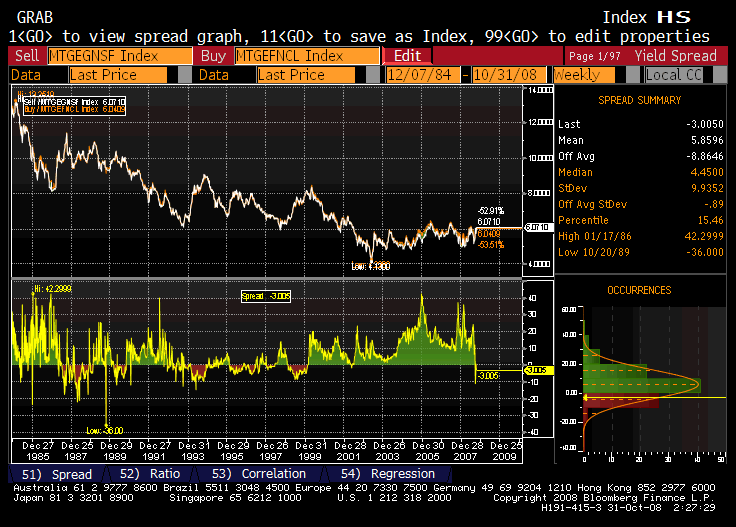David Merkel is an investment professional, and like every investment professional, he makes mistakes. David encourages you to do your own independent "due diligence" on any idea that he talks about, because he could be wrong. Nothing written here, at RealMoney, Wall Street All-Stars, or anywhere else David may write is an invitation to buy or sell any particular security; at most, David is handing out educated guesses as to what the markets may do. David is fond of saying, "The markets always find a new way to make a fool out of you," and so he encourages caution in investing. Risk control wins the game in the long run, not bold moves. Even the best strategies of the past fail, sometimes spectacularly, when you least expect it. David is not immune to that, so please understand that any past success of his will be probably be followed by failures. Also, though David runs Aleph Investments, LLC, this blog is not a part of that business. This blog exists to educate investors, and give something back. It is not intended as advertisement for Aleph Investments; David is not soliciting business through it. When David, or a client of David's has an interest in a security mentioned, full disclosure will be given, as has been past practice for all that David does on the web. Disclosure is the breakfast of champions. Additionally, David may occasionally write about accounting, actuarial, insurance, and tax topics, but nothing written here, at RealMoney, or anywhere else is meant to be formal "advice" in those areas. Consult a reputable professional in those areas to get personal, tailored advice that meets the specialized needs that David can have no knowledge of.


Government backstops aint what they used to be.
i hesitate to offer this, but could it be that there’s just no capacity out there to arbitrage in scale sufficient to approximate efficiency? it seems all too possible given that the arbitrageurs were largely hedge funds (most of whom are liquidating to some extent) and foreign central banks (who have by brad setser’s measure moved to treasuries for the maximal guarantee — and who have not been particularly yield sensitive in any case).
I guess this is more evidence of your post a few days back, where you said that odd happenings in the bond markets tend to occur in clusters.
I couldn’t begin to explain what’s happening, but I will venture that people believe nationalizing Fannie/Freddie will lower funding costs because they don’t actually look at the data, since it’s so intuitively correct of a statement and thus easy to make…
Mr. Merkel:
Could it have something to do with the TARP? Or are they just buying the toxic waste?
Also, I wonder why you think there should be a spread between FNMA and GNMA notes when there is now an explicit guarantee of the Fannie and Freddie. It seems like the only spread should be a liquidity one.
matt, the guarantee is not well respected. Agencies trade wide of Treasuries by 1%+. Either they should be flat to Treasuries, or F&F should have a similar spread over GNMA.
gaius, you might be right…